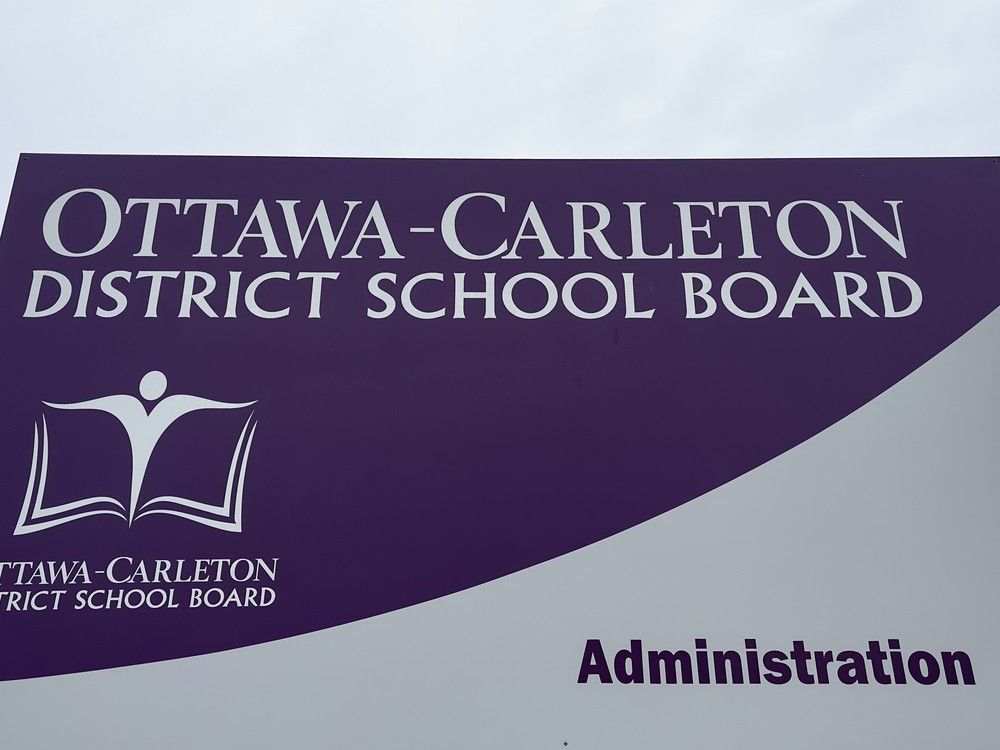In a marathon meeting Tuesday night, trustees at Ottawa’s largest school board voted to phase out alternative schools, keep 26 classes for students with special needs and approve controversial boundary changes.
Trustees at the Ottawa-Carleton District School Board also voted in favour of a motion that would see exemptions allowed for anyone who is eligible and wants one — as long as the program exists, there are spaces available and the exemption does not affect the viability of programs at both the receiving school and the sending school.
Reasons for applying for an exemption could include the student’s education needs, child care and keeping siblings together in the same school — or even just because it’s the family’s preference. Exemptions will be decided centrally and not at the local level.
“Now the threshold is much lower,” said trustee Lyra Evans, who proposed the motion.
“I think we will be better off as a district to keep as many people happy as possible.”
The families of hundreds of students may be contemplating moving schools in September 2026 as boundaries change and programs are phased out. Parents have been battling against
controversial school boundary changes
, arguing that the changes would separate siblings and force some students to travel farther when the stated goal of the review was to keep as many students as possible in neighbourhood schools.
The decisions made Tuesday night, to be finalized May 13, are the result of an ambitious review of elementary programs at the OCDSB prompted by concerns about inequities in schools as French immersion programs drew students away from community schools, leaving some English-only schools with barely sustainable populations.
There has been discussion about how decisions will be made around
“grandparenting” students whose families
want to remain at their current school.
The decision to adopt Lyra’s motion is “a step in the right direction,” said parent Shannon Worek. “But it’s insufficient to address a lot of concerns that parents have.”
But it was a night for celebration for the families of children in specialized program classes. The original proposal included gradually phasing out 26 specialized program classes and returning the students to mainstream classrooms.
Trustees voted to keep all of the specialized classes.
“It was a ‘yipee’ moment,” said Eevee McOuatt, the mother of Silas, 9, who has autism and ADHD. Silas has been a student in the Learning Language Program, which has eight to 10 students and focuses on verbal and reading skills, as well as responding to social cues.
“I’m relieved they’re going to keep the program. It will help so many children,” said McOuatt.
However, it was a night of disappointment for families who had been
fighting to keep the OCDSB’s five alternative schools open
.
Trustee Amanda Presley, wearing a purple alternative schools T-shirt, said she has experienced the program as a student. She currently has a child enrolled in the program and asked her fellow trustees to thoughtfully evaluate it.
“It’s a program that reflects the very values that our district aims to champion — learning, well-being and social responsibility,” said Presley. “Alternative is not just another stream, it’s a proven student-centred, inquiry-based model that works.”
Presley argued that the program supports students who are neurodivergent, racialized and facing mental health challenges.
“This program is not a boutique option, it’s a frontline equity intervention,” she said. “Cancelling it would send a devastating message to the very students our strategic goals are meant to serve. Some may argue that the program is costly, but the facts tell a different story.”
Trustees voted to phase out the alternative program. This September, the five alternative schools will begin to transition to community schools. Current attendance boundaries for alternative schools will remain in place during the phase-out period.
Students currently in a program at one of the five schools and any other students registering for September 2025, including new junior kindergarten students, would continue to have access to alternative programming until they complete Grade 6 or Grade 8.
The last cohort of junior kindergarten alternative school students entering next September will complete Grade 6 at the end of the 2032-2033 school year. Those opting to continue to Grade 8 will finish at the end of the 2034-2035 school year, according to the currently plan.
Related
- OCDSB to ‘grandparent’ as many students as possible over boundaries shifts
- No report cards, no sports tryouts: Parents make plea for alternative schools



